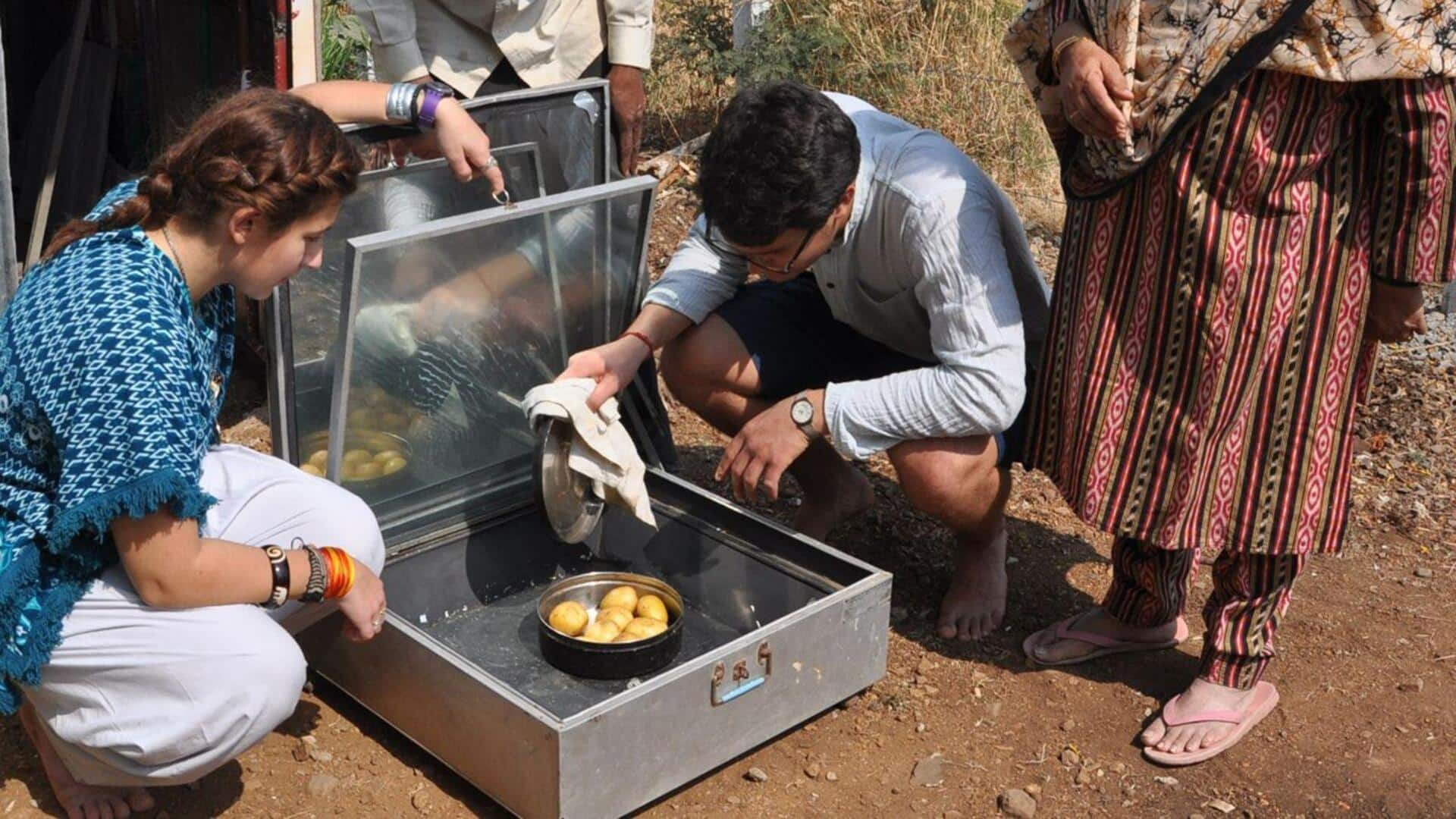
Master solar cooking techniques in Africa like a pro
What's the story
Solar cooking is a revolutionary and environmentally friendly way to cook your meals, using the power of the sun. Especially in Africa, where the sun shines brightly for the majority of the year, learning how to cook with solar can save you a lot of money on fuel and help protect the environment. In this article, we will share with you some crucial tips and techniques to master solar cooking.
Choosing equipment
Selecting the right solar cooker
Choosing the right solar cooker is crucial. Panel cookers are lightweight and great for camping. Box cookers achieve higher temperatures for baking. Parabolic cookers are the hottest but require tracking the sun. Think about what you want to cook, your budget, and if you need it to be portable. Each type has its strengths and weaknesses.
Timing is key
Understanding solar cooking times
Solar cooking times are much longer than traditional methods. Expect your food to take 2-3 times longer to cook in the sun, depending on the intensity of the sunlight and the type of food you're preparing. Start with easy recipes like rice or veggies to get used to the longer cooking times. Yes, you can still cook with solar energy on a cloudy day, but it will be slower.
Ingredient prep
Preparing ingredients for solar cooking
Proper ingredient preparation is key to successful solar cooking. Since cooking times are longer, smaller food pieces will cook faster. For example, cutting vegetables into bite-sized pieces or thin slices will ensure they cook more evenly and quickly. Also, preheating your solar cooker for 20-30 minutes before introducing your ingredients can drastically cut down on total cooking time.
Sun tracking
Maximizing sunlight exposure
To cook efficiently with a solar cooker, you need to be a little sun-smart. Position your cooker so that it stares the sun right in the face, and give it a little nudge every one to two hours to keep it chasing the sun across the sky. This way, your cooker soaks up all the sun it can throughout the day, keeping things hot and cooking times quick.
Safe practices
Safety tips for solar cooking
Solar cooking is safe, but accidents can happen. Follow these tips to stay safe: Always wear oven mitts when handling hot pots or lids. Never look at reflective surfaces without sunglasses. Protect your eyes! Always supervise children around active solar cookers. Follow these rules, and you'll be enjoying your solar-cooked meals safely.